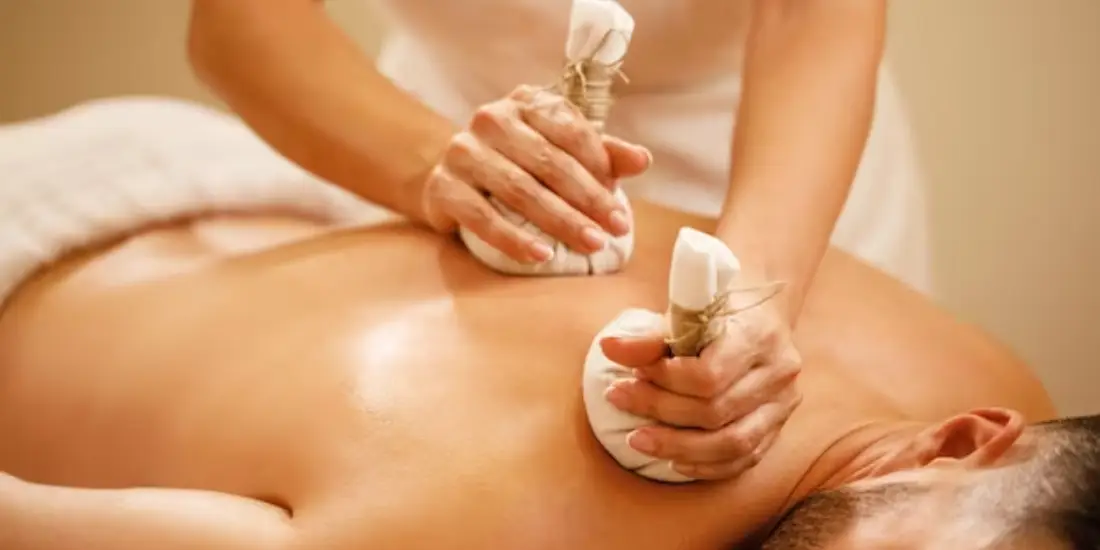
"Home remedies for acne and clear skin," "Natural ways to boost immunity," "Ayurvedic herbs for better digestion," and "Ayurvedic remedies for stress relief" Do these phrases resemble any of your recent Google searches, or are you looking for a holistic, all-natural approach to treating chronic illnesses? Are you tired of reading about the negative effects of other prescription drugs? You are in the right place now. Ayurvedic medicine is effective in the management and treatment of chronic diseases such as arthritis, diabetes, obesity, and heart disease. According to a recent survey, more than 60% of Dubai residents have used Ayurvedic treatment at least once. It is particularly popular among people who strive for overall emotional and physical well-being. Instead of waiting for the disease to manifest, they concentrate on natural remedies for living a healthy life.
The primary focus of the blog is on Ayurvedic treatment options in Dubai. It delves into the various Ayurvedic procedures and practices, emphasizing the unique characteristics and benefits of this traditional healing system in the context of Dubai's healthcare landscape.
Ayurveda is a 5,000-year-old system of medicine and holistic healing that originated in India. It is one of the oldest healthcare systems in the world and is still widely used today. Ayurveda is founded on several fundamental ideas, principles, and a holistic method of approaching health and well-being.
The body can struggle in Dubai's hot and muggy climate, and it can be simple to lose balance. By giving people in Dubai the resources they need to comprehend their unique constitutions and needs, ayurveda can assist them in keeping their equilibrium and health.
For instance, in Dubai's hot and muggy climate, someone with a pitta dosha may be more susceptible to inflammation and digestive issues. They can lessen their risk of developing these issues by adopting an Ayurvedic diet and lifestyle for pitta.
The three basic energies or doshas—vata, pitta, and kapha—are the central idea of Ayurveda. These doshas represent different combinations of the five elements (earth, water, fire, air, and ether) and govern various physiological and psychological aspects of an individual's constitution and health.
The term "Prakriti" refers to a person's natural constitution, which is established at birth and largely stable throughout life. On the other hand, vikriti stands for the illness or imbalance that has deviated from one's natural constitution.
Seven bodily tissues, or dhatus, are identified by Ayurveda as being essential to overall health. Among them are reproductive tissue, plasma, blood, muscle, fat, and bone.
Agni, which means "digestive fire" in many languages, is the body's metabolic force. Healthy digestion is essential, and Ayurveda emphasizes maintaining agni balance to maintain overall well-being.
These are vital life forces. Prana represents the life force that governs respiration and the movement of energy throughout the body. Ojas is the essence of all bodily tissues, and it contributes to strength, immunity, and overall vitality.
People around the world are becoming more aware of the benefits of Ayurveda for both physical and mental health. Ayurveda offers a holistic approach to health that focuses on preventing and treating diseases, as well as promoting overall well-being. There is a growing body of scientific research that supports the effectiveness of Ayurveda for a wide range of conditions. This research is making Ayurveda more appealing to people who are looking for evidence-based approaches to health and healing.
The demand for alternative and complementary medicine, including Ayurveda, has been steadily growing in Dubai over the past decade. People in Dubai are increasingly seeking holistic and natural approaches to healthcare in addition to conventional medicine.
Dubai attracts a large number of tourists, including wellness tourists, who are looking for alternative and holistic healing experiences. Many tourists seek Ayurvedic treatments during their visits. As the population becomes more health-conscious, there is an increased interest in natural and non-invasive therapies. People are looking for alternatives to pharmaceuticals and surgical procedures, seeking to prevent illness and maintain a healthy lifestyle.

Ayurveda's Panchakarma program is a thorough detoxification and rejuvenation regimen. Some therapies are used to purify and revive the body. Vamana (emesis), Virechana (purgation), Basti (enema), Nasya (nasal therapy), and Raktamokshana (bloodletting) are a few examples of these treatments. Toxins are removed and the body's natural balance is restored through panchakarma.
To regain energy flow and balance, marma therapy involves stimulating key energy points in the body. These "marma points" are thought to have an impact on one's physical, mental, and emotional well-being. The therapy uses gentle pressure and specific herbal oils.
Kizhi is a therapeutic procedure in which the body is covered in heated herbal poultices. These poultices are applied to the skin to treat pain, increase circulation, and reduce inflammation. They are frequently made of medicinal herbs.
Traditional Ayurvedic full-body massages called abhyanga use particular herbal oils. This therapeutic massage is renowned for relieving stress and promoting relaxation while nourishing and revitalizing the body's tissues. It is frequently employed to harmonize the three doshas—Vata, Pitta, and Kapha—and improve general well-being.
Swedana is a therapy that makes people sweat and encourages the body to rid itself of toxins. The body's channels are typically opened with steam therapy or heat application, allowing for the removal of impurities.
Nasya is a nasal therapy that involves the administration of herbal oils or medicated liquids through the nasal passages. This therapy is believed to clear the head, improve mental clarity, and alleviate various conditions related to the head and neck.
Basti is an enema therapy that uses herbal oils and decoctions to cleanse the colon and balance the doshas. It is often used for digestive and detoxification purposes.
Ayurveda and modern Western medicine are two very different directions to healthcare. Ayurveda is a holistic system that focuses on preventing and treating diseases as well as nurturing overall well-being. It takes into account the individual's mind, body, and spirit, and uses a variety of natural treatments, such as diet, herbal medicine, massage, and yoga.
Modern Western medicine, on the other hand, is a more specialized system that focuses on dealing with specific diseases and conditions. It uses a variety of pharmaceutical drugs, surgery, and other medical procedures.
Ayurveda: Rooted in ancient Indian traditions, Ayurveda is a holistic system that seeks to balance mind, body, and spirit. It underlines individualized treatment based on one's constitution (dosha) and places great significance on prevention and lifestyle.
Modern Medicine: Modern Western medicine adopts a reductionist strategy, diagnosing and treating specific diseases and symptoms with medicines, surgeries, and advanced medical technology.
Ayurveda: Ayurveda views health as a state of balance and seeks to maintain or restore it through dietary and lifestyle adjustments, herbal remedies, and therapies.
Modern Medicine: Modern medicine excels in managing acute and severe conditions, often relying on interventions like surgeries, vaccinations, and pharmaceutical drugs.
While Ayurveda and modern medicine differ significantly, they can complement each other in several ways:
In conclusion, Ayurvedic treatment options in Dubai are gaining favor among people who desire overall emotional and physical well-being.
Ayurveda offers a holistic direction to healthcare that focuses on preventing and dealing with diseases, as well as promoting overall well-being. Ayurvedic centers in Dubai offer various treatments and therapies that are renowned for their effectiveness and benefits. Deciding the right Ayurvedic center in Dubai is necessary, considering qualifications, hygiene, reputation, etc. The relevance and benefits of Ayurvedic treatments in Dubai cannot be overemphasized. They offer a distinctive and natural approach to healthcare that complements modern medical approaches. Overall, Ayurveda can help people maintain their equilibrium and health in Dubai's hot and damp climate.